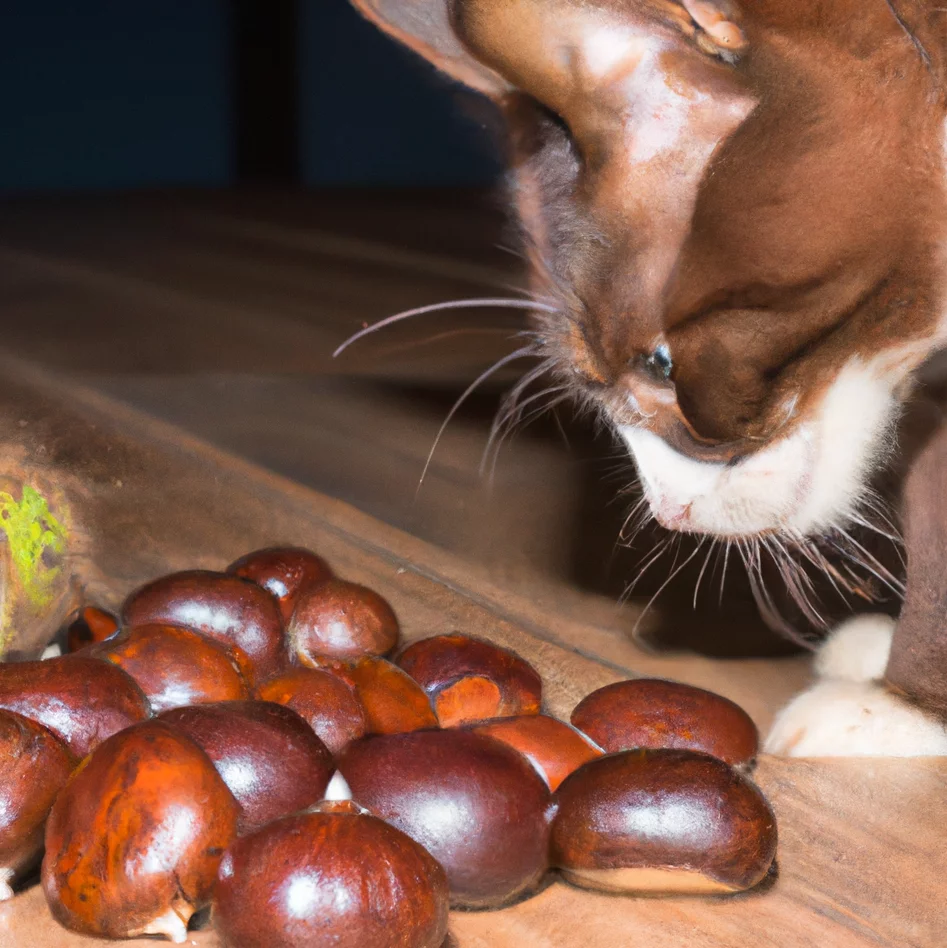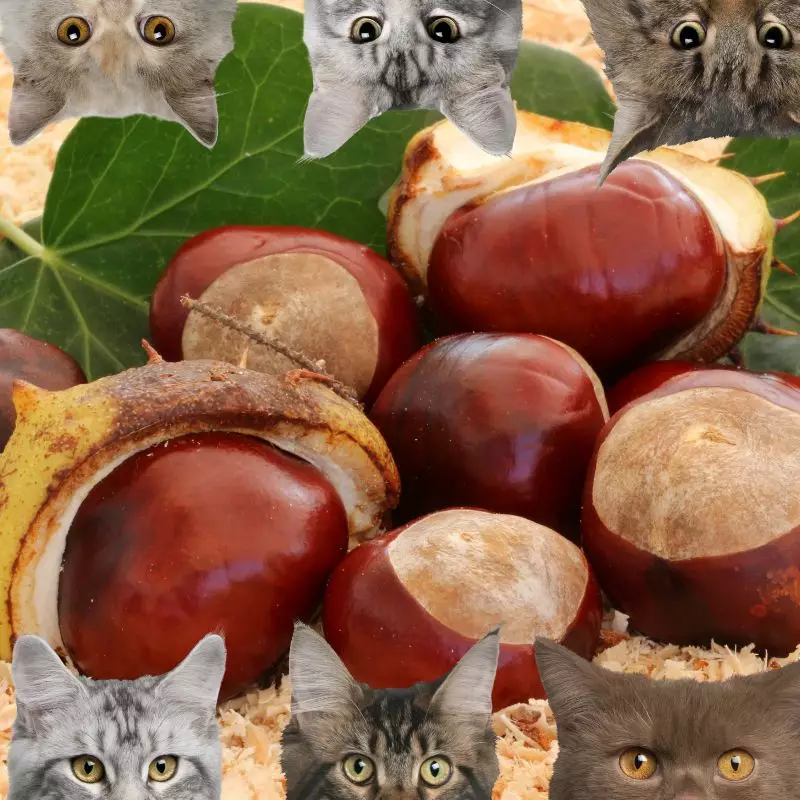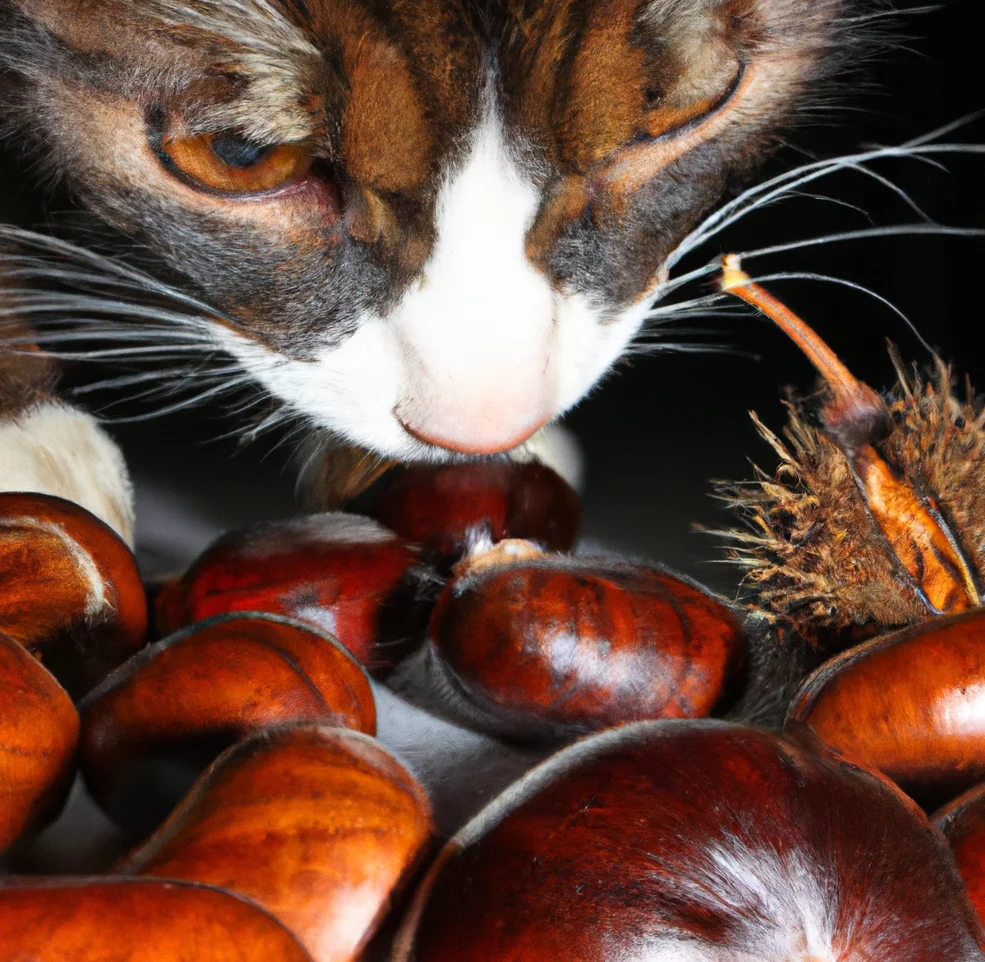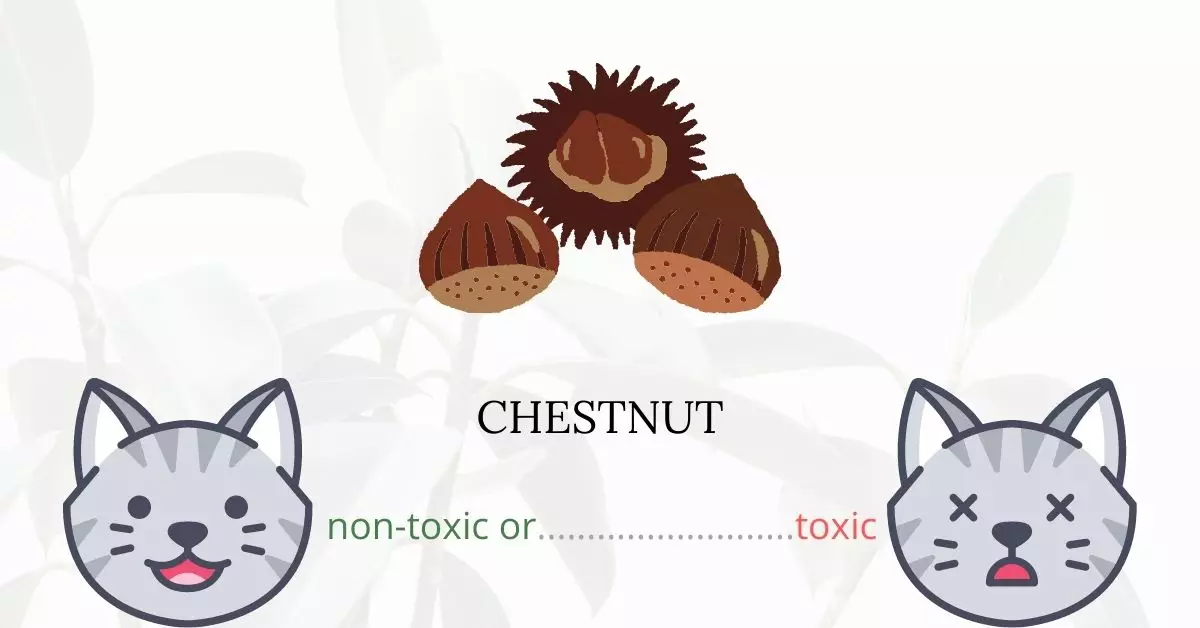Chestnuts are generally non-toxic to cats. If you ever find your feline companion around a chestnut tree, there’s no immediate cause for alarm should they take an interest in the tree’s branches or leaves.
That said, this article is crafted with utmost diligence, having been written in collaboration with a team of experienced DVMs (doctors of veterinary medicine). With their insights, we aim to provide accurate and up-to-date information regarding the potential risks associated with various plants, focusing on chestnuts in this context, and their implications for feline health. Furthermore, we have meticulously researched high-authority websites such as ASPCA and PetMD to ensure comprehensive coverage of the topic at hand.
Can Cats Eat Chestnut?

Yes, cats can eat chestnuts. They are generally safe for cats to consume. They do, however, represent a choking hazard as well as the danger of intestinal blockage, pancreatitis, and stomach discomfort. Cats do not require nuts in their diet, thus there is no reason to start providing chestnuts to your cat.
Chestnuts aren’t toxic for cats if consumed in moderation. However, most veterinarians advise against giving nuts to cats at all. The fact that cats have a tiny esophagus and trachea enhances their danger of choking on small dietary items like nuts. Nuts can also become caught in the stomach or intestines, producing a blockage that, in extreme situations, requires immediate surgical surgery to correct.
Chestnuts are abundant in minerals such as magnesium, B vitamins, potassium, fiber, and protein, which can all be beneficial to cats. They are, however, a calorie-dense dish with significant fat content. This means that only one or two nuts can significantly increase your cat’s daily calorie intake. Fatty foods, such as nuts, can enhance your cat’s chance of developing pancreatitis.
If you decide to feed chestnuts to your cat, there are a few things you should keep in mind. To lessen the danger of choking and intestinal blockage, depending on the size of the nut and your cat, you may need to slice it into bite-sized pieces. You should also only feed your cat unsalted nuts. Seasonings and other additions should be avoided. In extremely modest numbers, plain nuts without the shell can be provided. Many spices are toxic to cats, and cats do not require the extra sodium that salted nuts provide.
What is Chestnut?

Chestnut, scientifically known as Castanea dentat is a huge deciduous tree of the beech family endemic to eastern North America. It is sometimes referred to as the American chestnut. Throughout its span, the American chestnut was one of the most significant forest trees and was regarded as the finest chestnut tree in the world.
The American Chestnut was a majestic and essential tree that could be found in both mesic (moderate moisture) and xeric (dry) woodlands. However, Chestnut blight has practically wiped off this species in its native environment. In the wild, it often sprouts quickly from old stumps and roots, grows to 20 feet tall, and produces a few nuts before succumbing to the blight again. A blight-resistant cultivar is being developed.
This tree is not suggested for use in residential landscaping because of its vulnerability to blight. Other types that do not have these problems can be used as shade trees.
Keeping Cats Away From Chestnut

The most effective way for cats to stay away from chestnuts or any other plants is to train them. You may discipline your cat using various methods to teach them that they should not get near your plants.
You should also restrict your cats’ access outside. It is easier to keep an eye on your cats indoors where you can control what houseplants to grow.
Plants to Avoid For Your Cats
If you are a cat owner and unsure if the plants growing in your yard are harmful to your cats, check out this list of toxic plants for cats. You can also check our list of non-toxic plants for cats.





